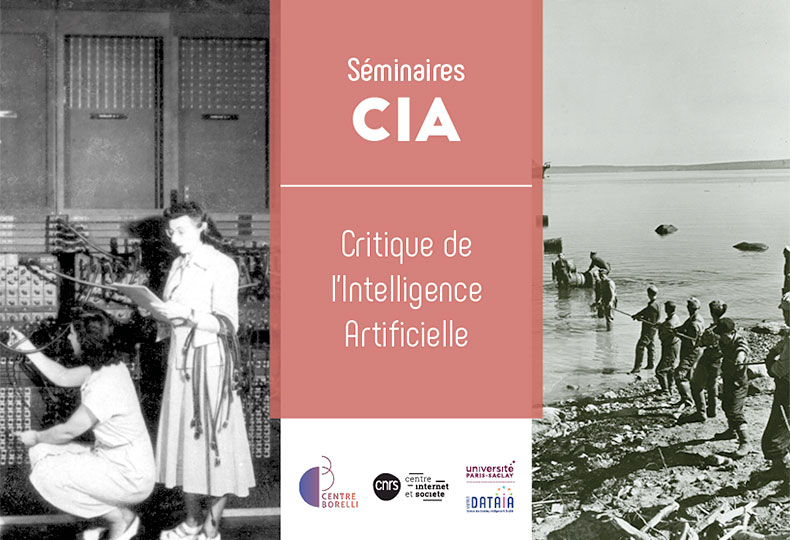Critical Seminar on Artificial Intelligence: Digital Agriculture

PRACTICAL INFORMATION
- Date and time: Tuesday 24 January 2023, from 12:00 to 13:30
- Conference mode: face-to-face in room 1Z56 or via Zoom (marie.garin [at] ens-paris-saclay.fr (contact Marie Garin to know the identifier))
- Speakers: Théo Martin and Thomas Borell
- Moderator: Marie Garin and Félix Tréguer
Abstract
"Digital agriculture: a promise in the service of a new spirit of productivism."
Since the end of the 2010s, digital agriculture has experienced a significant boom characterised by the creation of companies, research devices but also the placing on the public policy agenda. Although the deployment of these innovations remains very heterogeneous and our knowledge of their effects is limited and mixed, digital agriculture is asserting itself through a discourse that holds promise for the future. Digital agriculture is thus part of the economy of techno-scientific promises. We propose here to describe the singularities of this promise and to analyse how it renews the spirit of an agricultural productivism in crisis.
Biographies
Théo Martin
An agronomist by training, Théo Martin first worked in Senegal with the Food and Agriculture Organization (UN) on the adaptation of Senegalese agriculture to climate change. Back in France, he briefly worked on the evolution of French cereal farms before starting a geography thesis in 2019, at INRAE. He is interested in the transformations of work that accompany the robotization of milking dairy cows. The idea is to go beyond the myth of substitution to find out where work is reappearing and in what forms, in what spaces and for which workers.
Thomas Borrell
Thomas Borrell runs the Observatory of Agricultural Technologies within the Atelier Paysan, a cooperative created ten years ago to disseminate know-how in the field of self-construction of agricultural equipment and buildings (identification of innovations, participatory R&D with free distribution of plans, professional training in metal and woodworking, etc.).
Based on this experience, the Atelier Paysan analyses the role and consequences of unbridled machine development in agriculture, in the manifesto Reprendre la terre aux machines (éditions du Seuil) and in the detailed report Observations sur les technologies agricoles (2021) that Thomas Borrell coordinated.
The "Critique of Artificial Intelligence" (CIA) seminar
This seminar is part of the legacy of critical theory to question the "for what? of "artificial intelligence" (AI), at a time when its deployment seems to have become totalizing. Drawing on the work of researchers from a variety of disciplinary backgrounds and mobilising the knowledge of actors involved in the controversies surrounding AI, it aims to explore the following questions:
- What are the limits of AI?
- Who produces knowledge about AI?
- Under what conditions are these technologies developed and how are they integrated into institutional practices?
- What is the myth or ideology of AI in the collective imagination?
- What are its social and political effects?
- How are the power relations structured between the different groups mobilised around its issues?
- What is its social relevance, especially at the time of the Anthropocene?
